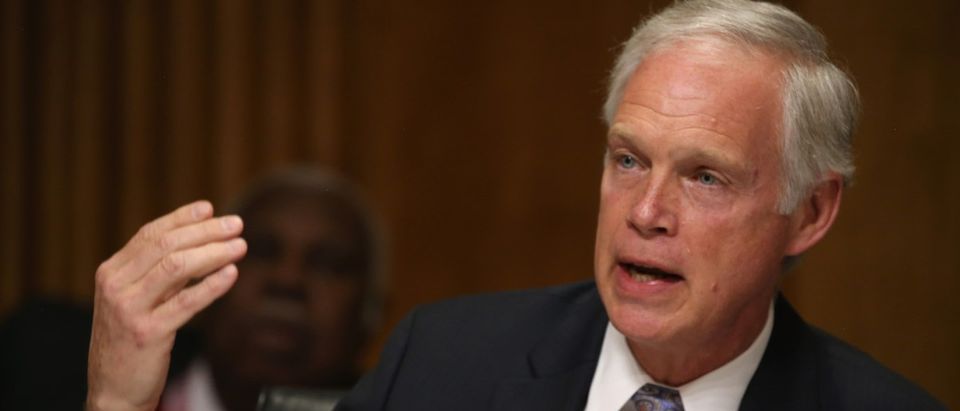Wisconsin Sen. Ron Johnson came out as the only Republican to explicitly oppose the Senate tax reform draft Wednesday, due to concerns that the proposed bill unfairly prioritizes the interests of corporations over those of small businesses.
Johnson cited the upper chamber’s decision to slash the corporate rate, while declining to include a similar tax cut for non-corporate businesses, as the central factor in his opposition to the bill.
The pass through rate, which applies to non-corporate entities like sole proprietorships, partnerships, limited liability companies and S Corporations, mandates that investors and partners pay taxes on their business profits through individual returns at individual rates.
“I’m just looking for a fair shake for all businesses to maintain the competitive balance and position of all businesses,” Johnson told reporters Wednesday. “We’re leaving those pass-through businesses behind. And those pass-through businesses are the engine of economic growth, job creation, innovation in our economy.”
Under the Senate version of the bill, the top pass through rate will remain over 30 percent. The House version, set to be voted on Thursday, lowers the top pass through rate to 25 percent but severely restricts the types of business that qualify.
“I have no problems in making all American businesses competitive globally,” Johnson told The Wall Street Journal Wednesday. “This isn’t anti-big corporation at all. When you’re going to do a tax reform, you have to treat them equitably so they can maintain their competitive position here at home as we’re making them competitive globally.”
Johnson’s opposition is significant as Republicans can only afford two defectors if they hope to pass the bill along party lines under budget resolution rules.
Lowering the top individual rate, which effectively lowers the top pass through rate, would be politically difficult as more than half of pass through business income goes to the wealthiest 1 percent of households, according to the Tax Policy Center.
Unlike pass through businesses, which are taxed once at the top individual rate of 39.6 percent in most cases, corporate profits are taxed once at the corporate rate, cut from 35 to 20 percent under current proposals, and then again when shareholders pay a tax on the dividends those profits yield.
Johnson has proposed eliminating the double taxation structure by taxing corporations like pass throughs, so that shareholders would pay one tax on their corporate profits. Johnson has given up on his proposal since it failed to gain traction with his Republican colleagues.
The Senate Finance Committee is scheduled to vote to advance the measure Friday, but the bill’s prospects are all but determined as GOP Sens. Susan Collins of Maine, John McCain of Arizona and Lisa Murkowski remain on the fence.
All content created by the Daily Caller News Foundation, an independent and nonpartisan newswire service, is available without charge to any legitimate news publisher that can provide a large audience. All republished articles must include our logo, our reporter’s byline and their DCNF affiliation. For any questions about our guidelines or partnering with us, please contact licensing@dailycallernewsfoundation.org.












